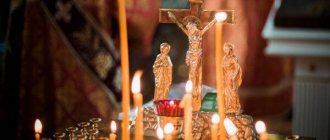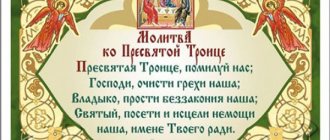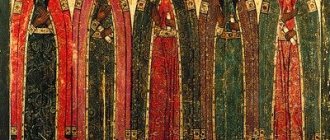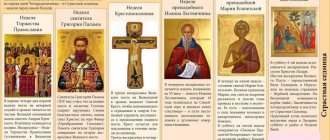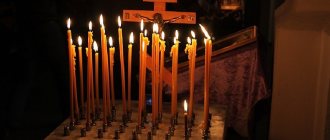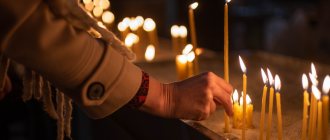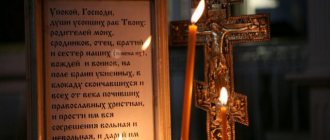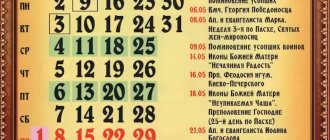What is Radonitsa
Radonitsa is the day of the first church-wide commemoration of the dead after Easter. Orthodox Christians say that this is both a sad and joyful holiday. If everything is clear with sadness - believers grieve for those who have long been no longer in the world of the living, then many people do not understand the reasons for joy. In fact, there are reasons. The clergy say that people should rejoice for the deceased, as they find themselves in a better world and become free.
Radonitsa has long become the most significant memorial day for Orthodox Christians. It is on this date that believers go to the cemetery to visit the graves of their ancestors. They also go to church and pray for the repose of souls. It is very important to do everything correctly so as not to regret reading the sacred lines later.
Radonitsa: a vestige of pagan culture
Contrary to popular belief, Radonitsa does not have a purely ecclesiastical origin. It was celebrated by our ancestors long before Rus' became Christian. Its former name is Radunitsa, and its meaning can only be understood if you have an idea about the archaic beliefs of the Slavs.
Like most peoples of antiquity, the tribes that inhabited the territories of what is now Ukraine, Belarus and the European part of Russia did not doubt the existence of the afterlife. Our ancestors believed that after a person’s death, his soul ascends to the gods and moves to the kingdom of the dead. However, unlike the developed religions of the Middle East and the Mediterranean, East Slavic paganism did not endow the afterlife with any moral traits and did not know such concepts as “hell” and “paradise.” Everyone who died a non-violent death went to another world, flew to Iriy, to the south, to a distant land, which only birds among the living could visit. Life there was certainly different, but fundamentally almost no different from what the deceased did before his death.
There was no way back from the kingdom of the dead, but there were certain days a year when a living connection was established between the two worlds, and the souls of previously deceased people could come to their native places, visit their loved ones, and participate in their affairs. Usually such special periods occurred on the days of the solstices and equinoxes. In addition, the funeral cycle was also associated with the agricultural calendar, so the dead were often especially revered either on the eve or after the completion of certain field work.
In honor of the ancestors, funeral feasts were supposed to be held - ritual dinners with copious libations, games, songs, round dances and other elements, which in our time are called “mass cultural events”. Their goal was simple - to appease the souls of the dead, to gain their favor. The fact is that the ancient Slav saw in his deceased grandfathers and great-grandfathers no longer ordinary people, but spirits who possessed some divine abilities. If desired, they could influence the forces of nature - either cause disasters (droughts, pestilence, earthquakes), or send down various gifts of grace (bountiful harvest, warm weather, offspring of livestock). The existence of the living depended on the whims of the dead, and therefore the living sought in every possible way to “respect” the souls of their ancestors. It was believed that a rich funeral feast, fun, a good word about the deceased, and praise in his honor guaranteed the protection of heaven and the well-being of the people.
Radunitsa was one of these memorial days. More precisely, it was not even a day, but a whole cycle, which lasted about a week and coincided with the arrival of spring. The whole village went out into the fields, groves, meadows, and called out to the spirits. At the same time, they tried to bring joy to the dead - with a warm word, respectful treatment. At the graves, toasts were made in honor of the dead, and some of the wine was poured onto the ground. The same thing was done with food - the Slavs believed that food brought to the graves ends up in the next world, and the ancestors can enjoy it.
In general, all the described rituals have successfully survived to this day - and today in cemeteries, homeless people and cleaners pick up pieces of bread, cookies, sweets, glasses of vodka left by caring relatives on the graves of relatives and friends. The essence and meaning of these traditions have long been forgotten, but many people still observe them without thinking about their pagan meaning. Not realizing that they contradict Christian teaching.
Prohibitions and traditions of Radonitsa
Like any church event, Radonitsa had its prohibitions. It is known that Orthodox believers should not engage in heavy physical activity, argue, conflict or insult anyone on this day. You should also refrain from consuming alcoholic beverages. There are exceptions to the rules, for example, alcohol can be consumed at home, but it is prohibited to do so in a cemetery. The clergy claim that consuming such drinks in a sacred place is a mockery of the dead.
The main tradition on this day is prayer. People go to church to pray next to the clergy. The people pass a note containing the names of the deceased for whom they need to pray. It is worth noting that the names of those who committed suicide are not written on the note; there are separate memorial days for such people. When believers come home after visiting church, they light candles for the repose of relatives and have a meal. You must leave one place at the table, which is intended for the deceased.
Household signs
On this day, it is not forbidden to engage in worldly affairs if they do not come to the detriment of the celebration of Radonitsa.
- On Parents' Day, household work is allowed - cleaning, cooking, sewing, if their implementation does not interfere with visiting church and cemetery.
- It is not customary for Radonitsa to work in the garden or “disturb” the earth in any way.
- There is an ancient sign associated with lighting a bathhouse - in the old days they heated it, but did not wash it, so that the spirit of a deceased ancestor could fly there. This ritual of invoking the dead has nothing in common with church teaching and is condemned in Orthodoxy.
- You cannot swear or quarrel; the day should be spent quietly, in prayer and household chores.
Congratulations
What to say to loved ones on this bright and sad holiday
Prayer for the departed on Radonitsa
Many believers pray incorrectly; this is the main mistake due to which prayers may not be heard by the Lord. According to the clergy, you need to recite the sacred lines, sincerely believing in them. If a person does not believe in what he says, all his thoughts are in vain. Sometimes it is not enough to simply read aloud a few lines of scripture. You need to comprehend them, understand what they are and think about when your wish will come true. In this case, the Almighty will hear you and make your plans come true.
On Radonitsa, Orthodox Christians read this prayer:
Subject:
- Radonitsa
Russian Orthodox Church
print version
Tuesday of the 2nd week of Easter.
The order of readings, according to the calendar:
According to the Charter - ordinary service according to the Triodion and Menea. The remembrance of the dead takes place at a memorial service.
28. Tuesday of the 2nd week of Easter. Radonitsa. Remembrance of the dead. App. from the 70 of Jason and Sosipater. Mchch. Dada, Maximus and Quintilian.
St. Kirill, ep. Turovsky.
The service of the apostles and martyrs does not have a holiday sign; it is performed together with the service of the Triodion.
Note.
The Charter resumes from Monday through Antipascha Week the singing of litiyas for the departed (see the note on Antipascha Matins, as well as: Typikon, Chapter 49, “The Week of Cheese Evenings,” 3rd “Zri”). Obviously, this is where the deliberate funeral service of this day comes from, popularly called Radonitsa (“joyful days” - joyful days for the deceased). Meanwhile, the Typikon does not give any special instructions regarding the order of service in Radonitsa.
During daily services, no changes or deviations from the general order given by the Charter should be allowed. Radonitsa falls during the period of post-feast, therefore, on Radonitsa not only at Vespers, Matins and Liturgy, but also at Compline there should be nothing specifically funeral. Only funeral prayers at the Midnight Office are preserved.
Deliberate commemoration of the dead should be limited to a funeral litany or memorial service[166].
The evening service, according to the Charter, begins at the 9th hour: “Blessed is our God...”. "Amen". “Christ is risen from the dead...” (three times). Trisagion. According to the “Our Father” - the exclamation: “For Thy is the kingdom...”, “Amen”. “Lord, have mercy” (12). "Glory, even now." “Come, let us worship...” (three times), psalms, etc.
At Vespers
at the cry “Blessed is our God...” - “Amen.” “Christ is risen...” (three times), and the opening psalm is read.
Note.
“Come, let us worship” is usually omitted before Psalm 103.
Kathisma 6th.
On “Lord, I cried” stichera on 6: the apostles, tone 8 – 3, and the martyrs, tone 1 – 3. “Glory, even now” - the feast of Triodion, the same voice: “To the disciple who doubts...”.
Note.
During the service of two saints, each of whom has their own stichera on “Lord, I cried,” the stichera of the saints on 6 are sung. “Glory” - the saint (if any), “And now” - the holiday. The stichera of the Triodion holiday, indicated on “Lord, I cried,” are sung on the stichera. The stichera on the verse placed in the Triodion (and belonging to the Octoechos system) are not sung.
No entry. Prokeimenon of the day.
On the stichera are the stichera of the holiday of Triodion, tone 4 (see on “Lord, I cried”)[167]. “Glory, even now” - the holiday of Triodion, tone 2: “After Your rising, O Lord...”.
According to the Trisagion - troparion of the apostles, tone 3. “Glory, even now” - troparion of the holiday of Triodion (Antipascha), tone 7: “The tomb is sealed...”.
At matins
at the exclamation “Glory to the Holy Ones and Consubstantial...” - “Amen.” “Christ is risen...” (three times), and the Six Psalms.
Note.
“When the priest began to create the beginning: Glory of the Saints... we say: Christ is risen... three times, in a quiet voice. This is the beginning: Christ is risen: in the hours, and in vespers and complines, from this morning of the week of Antipascha, even until the Ascension of the Lord. [How could I not be informed about the Midnight Office, since in my cells I remember this being sung: from now on and there the beginning happens.] And after Christ is risen: Glory to God in the highest: and the usual six psalms” (Typikon, ch. 50, “In Monday of the 2nd week of Antipascha at Matins"). Based on these instructions from the Typikon, liturgical practice allows for the abolition of the double psalm at the beginning of Matins before the Feast of the Ascension of the Lord (cf. Rozanov V. Divine Service Charter of the Orthodox Church. pp. 702–704). In this case, the dedication of the temple takes place during the three-time singing of the troparion of Easter[168] after the exclamation “Glory to the Saints...”. However, according to Rev. K. Nikolsky (see his “Manual for the study of the Rules of Divine Services of the Orthodox Church,” pp. 641, 268), the double psalm should be preserved as part of Matins.
On “God is the Lord” - the troparion of the holiday of Triodion (Antipascha), tone 7: “The tomb is sealed...” (twice). “Glory” is the troparion of the apostles, tone 3, “And now” is the troparion of the holiday of Triodion (Antipascha), tone 7: “I have sealed the tomb...”.
Kathismas 7th and 8th. Small litanies. Sedalny Triodion. “Having seen the Resurrection of Christ...” (once). Psalm 50.
Canons: the holiday of Triodion (Antipascha) with irmos for 6 (irmos twice), apostles for 4 and martyrs for 4.
Bible songs “We sing to the Lord...”.
Katavasia according to the 3rd, 6th, 8th and 9th cantos - irmos of the canon of the Menaion (martyrs).
According to the 3rd canto - the kontakion of the apostles, tone 4; Sedal of the Apostles, tone 8. “Glory” – the sedal of the martyrs, tone 1, “And now” – ipakoi of the Triodion (Antipascha), tone 6: “As in the midst of the disciples...”.
According to the 6th song - kontakion and ikos of the holiday of Triodion (Antipascha), tone 8.
On the 9th song we sing “The Most Honest”.
According to the 9th song, “It is worthy to eat” is not sung. Svetilen Triodi: “My ouds...”. “Glory, even now” - the luminary Triodion: “Today spring is fragrant...”.
“Praise the Lord from Heaven...” and psalms of praise.
On the praises of the stichera of the Triodion, tone 1 - 4 (the first stichera - twice). “Glory, even now” - the holiday of Triodion, tone 2: “By the closed doors...”.
“Glory befits you...” is not read, but the reader immediately says: “Glory to You, who showed us the light.” The daily doxology is read.
On the stichera are the stichera of the holiday of Triodion, tone 2. “Glory, even now” - the holiday of Triodion, tone 6: “By the closed doors...”.
According to the Trisagion - troparion of the apostles, tone 3. “Glory, even now” - troparion of the holiday of Triodion (Antipascha), tone 7: “The tomb is sealed...”.
On the clock
- troparion of the holiday of Triodion (Antipascha). “Glory” is the troparion of the apostles. Kontakion is only for the holiday of Triodion (Antipascha).
At the Liturgy
blessed of the holiday of Triodion, hymn 4 – 6 (with Irmos).
At the entrance - the troparion of the holiday (Antipascha), the troparion of the temple of the Mother of God or the temple of the saint, the troparion of the apostles; kontakion of the saint's temple. “Glory” is the kontakion of the apostles, “And now” is the kontakion of the holiday (Antipascha). (The troparion and kontakion of the Church of the Lord are not sung; the kontakion of the Church of the Mother of God is not sung.)
Prokeimenon, alleluia and communion - the holiday of Triodion (Antipascha).
Apostle and Gospel - of the day.
Honorer of Easter.
166 “It is sometimes permitted to perform a funeral service on Radonitsa with the borrowing of hymns from the service of the Ecumenical Memorial Saturday before Pentecost and their connection with the service of the after-feast of Antipascha, arbitrarily invented, has no basis in the Typikon. It does not correspond to either the letter or the spirit of the liturgical Rules of the Orthodox Church, which in relation to its divine services is always strictly guided by the wise instruction of Ecclesiastes: for everything there is a time... a time to mourn, and a time to rejoice (Eccl. 3: 1, 4). The Charter of the Orthodox Church does not tolerate and does not allow the mixing of the mournful funeral and the solemn holiday...” (Athanasius (Sakharov), Bishop. On the commemoration of the dead according to the Charter of the Orthodox Church. pp. 47–48). 167 The verse stichera of the Triodion, which belong to the Octoechos system, are not sung at all in this case. 168 The Easter troparion is sung protractedly so that the priest has the opportunity to burn incense in the temple.
← previous day next day →
Weather signs
Radonitsa usually falls in the second half of spring, so weather signs are directly related to what the summer will be like and whether a good harvest is worth waiting for.
- Frosts on the night of Radonitsa - the harvest will not be rich.
- In the morning the sky is crimson - a sign of wind and rain.
- Meeting rooks on this day means summer will be warm and sunny.
- The new moon on Radonitsa means a good harvest.
- The day turned out to be rainy - good news.
- Washing your face with rainwater on Radonitsa means gaining beauty and health for many years.
What prayer to read on Radonitsa for deceased relatives when visiting a grave
Lord Jesus Christ our God! You are the keeper of the orphans, the refuge of the grieving and the comforter of the weeping. I come running to you, an orphan, groaning and crying, and I pray to you: hear my prayer and do not turn your face away from the sighs of my heart and from the tears of my eyes. I pray to You, merciful Lord, satisfy my grief over separation from my parent (my mother), (name) (or: with my parents who gave birth and raised me, their names) - , and his soul (or: her, or: them), as having gone (or: gone) to You with true faith in You and with firm hope in Your love for mankind and mercy, accept into Your Kingdom of Heaven. I bow before Your holy will, which was taken away (or: taken away, or: taken away) from me, and I ask You not to take away from him (or: from her, or: from them) Your mercy and mercy. We know, Lord, that You are the Judge of this world, you punish the sins and wickedness of the fathers in children, grandchildren and great-grandchildren, even to the third and fourth generation: but you also have mercy on the fathers for the prayers and virtues of their children, grandchildren and great-grandchildren. With contrition and tenderness of heart, I pray to Thee, merciful Judge, do not punish with eternal punishment the unforgettable deceased (unforgettable deceased) for me Thy servant (Thy servant), my parent (my mother) (name), but forgive him (her) all his sins ( her) voluntary and involuntary, in word and deed, knowledge and ignorance, created by him (her) in his (her) life here on earth, and according to Your mercy and love for mankind, prayers for the sake of the Most Pure Mother of God and all the saints, have mercy on him (her) and eternal save me from torment. You, merciful Father of fathers and children! Grant me, all the days of my life, until my last breath, not to cease to remember my deceased parent (my deceased mother) in my prayers, and to beg Thee, the righteous Judge, to order him in a place of light, in a place of coolness and in a place of peace, with all the saints, from nowhere all sickness, sorrow and sighing have fled. Merciful Lord! Accept this day for Thy servant (Your) (name) my warm prayer and give him (her) Your reward for the labors and cares of my upbringing in faith and Christian piety, as He taught (taught) me first of all to lead You, my Lord, in reverently pray to You, trust in You alone in troubles, sorrows and illnesses and keep Your commandments; for his (her) concern for my spiritual progress, for the warmth of his (her) prayer for me before You and for all the gifts he (she) asked me from You, reward him (her) with Your mercy. Your heavenly blessings and joys in Your eternal Kingdom. For You are the God of mercies and generosity and love for mankind, You are the peace and joy of Your faithful servants, and we send glory to You with the Father and the Holy Spirit, now and ever and unto the ages of ages. Amen.
